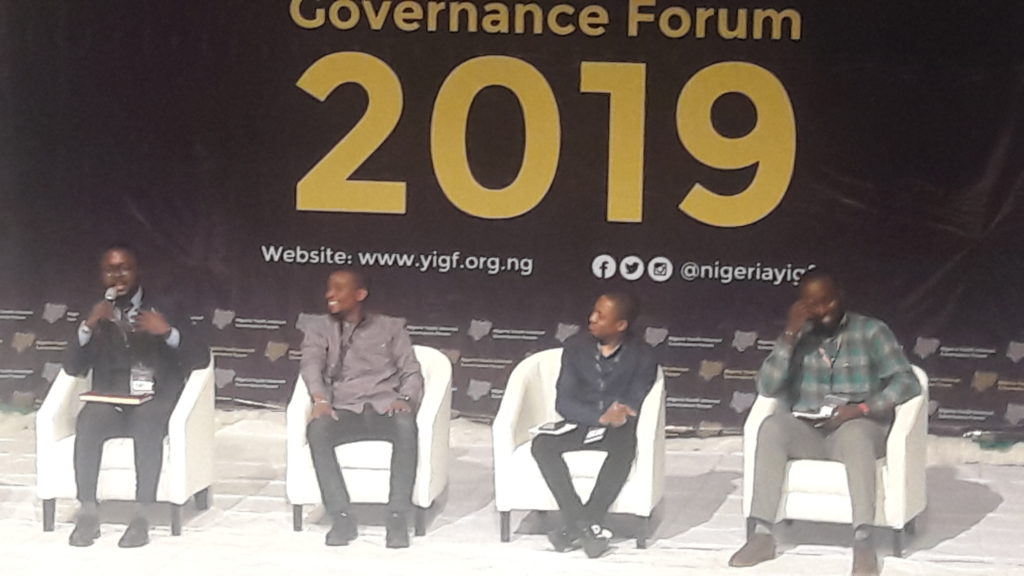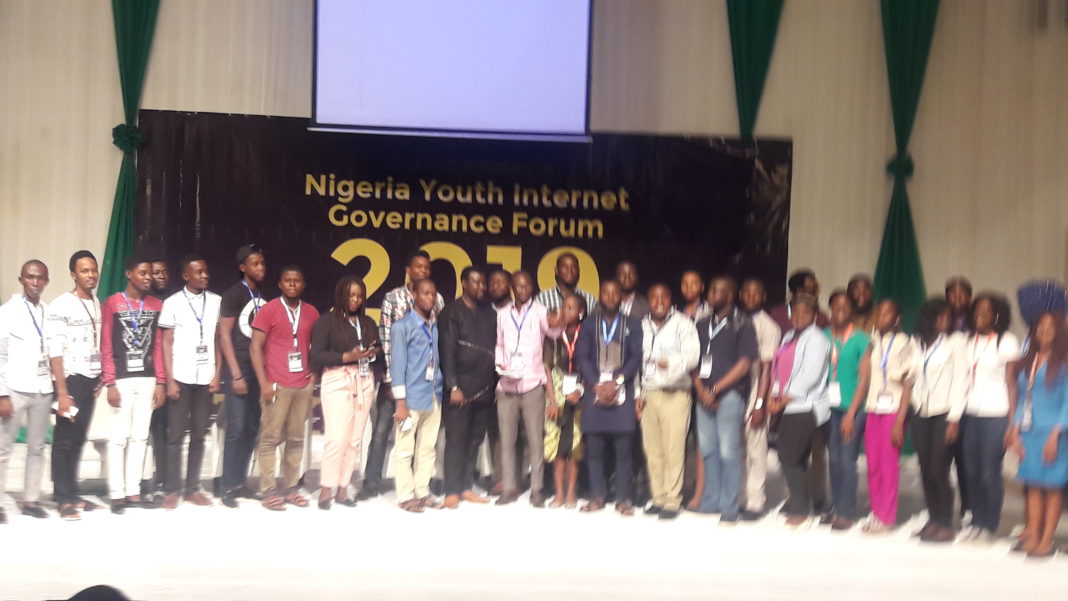Multi-stakeholders Forum Coming To Tackle Cyber-crime
Nigerian youths who gathered today, in Lagos, at the Nigeria Youth Internet Governance Forum (NYIGF) have given suggestions on how, the internet can be put to productive use and, to reduce growing cases of cyber-crime.
The Nigeria Internet Governance Youth Forum, which had the theme “Our Internet: Shaping the Digital Future “was coordinated by Joshua Joshua, and Caleb Ogundele, both of NYIGF.
The youths who spoke during two panel discussions on what constitute hate speech and the cybercrime phenomenon suggested that individual values, idiosyncrasies, and cultures should not be used as standards for judging and making policy on hate speech, though national culture and political ecosystem could be determinants.
According to them, while the internet has become a tool for sustaining democratic process, it has, on the other hand, become the dread of every tyrant.
One of them, Ojo Oderemi, once president of the University of Ibadan, who said he had been a victim of the imposition of sectional values and cultures on diverse group, argued that a free internet can help the office of the citizen to bring governments accountable.
He said the youths should not be cowed in any form from using the tool of the internet to express himself and hold government accountable.
He asked: who should measure or develop the standard to judge what is allowed as online content? Who determines what constitutes hate speech, saying that the knowledge and information that one has and expresses should not be determined by ones age.
Ogundele wants government to develop an online social behavior curriculum, which should be taught in Nigerian schools, while Omolola Ojo, of the GTB online platform, said the news that is posted on social media should be investigated before they are uploaded, adding them even if occasion does not allow for a story to be posted, because it is a breaking story, efforts should be made to publish a follow-up story that takes into account all the facts of the story.
Another panel of discussants suggested that cybercrime offenders, when they are caught should not be punished, but be reformed and transformed into becoming useful to the whole cyber security architecture of the country.
While cybercrime, is on the increase and was not going to go away, as the panel noted, the federal government need to invest in cyber security to handle such matters of awareness creation, re-engineering and transforming of the police cyber security investigation team to enhance their knowledge and capacity to fight cybercrime using modern tools.
They observed that the use of the State Anti-robbery squad (SARS) to harass Nigerian youths and the profiling of them, using dress codes and facial outlooks, was archaic, unnecessary and should be discouraged, noting that those who commit cybercrime do not necessarily walk the street wearing dreadlocks and tattoos.
It was also their view that there is need for stakeholders to collaborate to fight cyber crime, if the country was going to make any progress and that back-end information should be used to fight cyber-crime.
In the formulation of laws on cyber-crime or on the use of technology, the youths say such laws should be futuristic because technology is always ahead of law.
Responding to some of the issues raised by the youths the Head of Cybersecurity at the National Information Technology Development Agency ( NITDA) Dr Dimie Wariowei said government was in the process of setting up a Multi-stakeholder Forum to fight cyber-crime. All stakeholders in the internet ecosystem, according to him would be part of the Forum.
He said NITDA has been going to all the six geopolitical zones of the country to educate Nigerians on cyber-crime, saying however there was need to increase on the efforts.
Before the youths gave their views on the issues, Mrs MaryUduma, Chairperson of the Nigerian Internet Group, had admonished Nigerian youths to look at possible ways they can contribute to a rich and productive internet use, and should see internet as a place where everyone comes together to share.

She said Nigerian youths should become active role players in the emerging, and evolving internet ecosystem and be involved in helping to stem the increase in cybercrime.
On his part, Gbenga Sesan, Executive Director of Paradigm Initiative, while narrating his story of how he became relevant on the world stage of ICT policy discussion and formulation, told the youths that if they worked on their passions they can get anywhere.
“Nigerian youths should be the ones deciding the important issues where internet is concerned. What Nigeria becomes is what the youths contribute to it”, he said.
Suggestions at the youth forum are expected to help the federal government formulate new policies on internet governance and improve on existing ones.
The youth meeting today, is prelude to the meeting of the multi-stakeholders Advisory Group (MAG) of the Nigeria Internet Governance Forum (NIGF) which holds on Thursday, July 11, in Lagos.
The Forum, is the local version of the United Nations Internet Governance Forum (IGF) that would hold in Berlin, Germany in November 25-29.
Both the youth meeting on Wednesday and the multi-stakeholders meeting on Thursday are intended to be used to harmonize the inputs of Nigerian stakeholders into the Regional and Global IGF framework covering: Cybersecurity and Trust; Internet Economy; Access, Inclusiveness and Diversity; Openness; Enhancing Multi-stakeholder Cooperation; Critical Internet Resources; and Emerging Issues.













